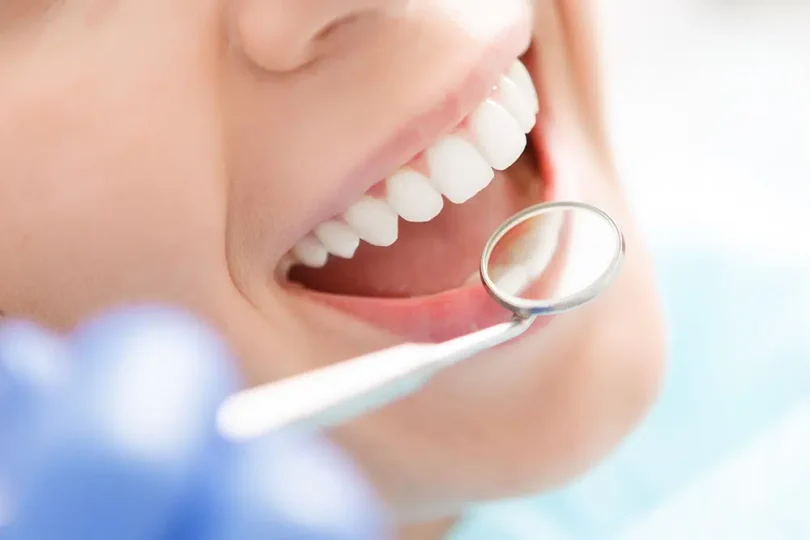Most people know that brushing twice a day, flossing and visiting the dentist regularly are essential to maintaining good oral hygiene. But what if your mouth is sending warning signals that you do not recognise?
Oral health problems often start quietly and if left unchecked, they can lead to more serious conditions not just in your mouth but in your overall health too.
Why Silent Symptoms Matter
Many dental issues start without pain or visible damage. You might think everything is fine because your teeth look white and you are not experiencing any discomfort. However, your gums, breath, tongue and jaw can all give subtle clues that something is not quite right. Spotting these secret signs early means easier treatment, fewer costs and better health outcomes.
1. Bleeding Gums
It might seem normal for your gums to bleed a little when you brush or floss but this is actually one of the earliest signs of gum disease. Healthy gums should not bleed. If you notice pink in the sink after brushing or your floss comes out with blood, it is time to take it seriously. Gum disease, if left untreated, can lead to tooth loss and has also been linked to heart disease and diabetes.
2. Bad Breath That Will Not Go Away
Morning breath is normal but if you are constantly dealing with unpleasant breath even after brushing and rinsing, it could be a red flag. Chronic bad breath, also known as halitosis, can be caused by bacteria buildup in the mouth, dry mouth or infections like gum disease. A skilled dentist Preston can help find the cause and recommend treatment to freshen your breath and improve your oral health.
3. Tooth Sensitivity
If you feel a sharp pain when eating hot, cold or sweet foods, you may have sensitive teeth. While some sensitivity is common, especially after dental work, constant discomfort can indicate tooth decay, worn enamel or exposed roots. Ignoring it may lead to more serious problems like infections or abscesses.
4. Loose or Shifting Teeth
Adult teeth should not feel wobbly. If you notice your teeth shifting or feel like they are becoming loose, it could be a sign of advanced gum disease or bone loss in the jaw. This is a serious issue that needs urgent attention. Your dentist can determine the cause and take steps to stabilise your teeth.
5. Dry Mouth
A dry mouth might seem like a minor annoyance but it plays a bigger role in your oral health than most realise. Saliva helps clean your teeth, neutralise acids and fight bacteria. If your mouth often feels dry, you are more prone to decay and infections. Dry mouth can be a side effect of medication or a sign of an underlying health condition. Your dentist can help manage this symptom and protect your teeth.
6. Jaw Pain or Clicking
Pain or clicking in your jaw when you chew or yawn could be related to a problem with the temporomandibular joint (TMJ). TMJ disorders can lead to headaches, difficulty chewing and worn teeth. Early treatment can ease discomfort and prevent long-term damage.
7. Changes in the Colour or Texture of Your Tongue
Your tongue should be pink and covered in tiny bumps called papillae. If it looks white, red, smooth or patchy, it may point to nutritional deficiencies, infections or other medical conditions. A regular dental check-up can help you identify these changes and ensure they are properly investigated.
8. Sores That Do Not Heal
A sore in your mouth that does not go away after two weeks should be checked immediately. This could be a sign of infection or something more serious like oral cancer. Dentists are trained to recognise early signs of cancer and other diseases, making regular visits vital for more than just clean teeth.
9. Receding Gums
If your teeth look longer than they used to or your gums are pulling away from your teeth, you may be experiencing gum recession. This exposes the roots of your teeth, making them more vulnerable to decay and sensitivity. Receding gums can be a sign of gum disease or aggressive brushing and should be addressed quickly.
10. Difficulty Chewing or Swallowing
If chewing food becomes painful or you have trouble swallowing, it may be more than just a dental issue. Problems with chewing can stem from infections, cracked teeth or jaw issues. Your dentist can help identify the cause and recommend the right treatment.
When to See a Dentist in Preston
If you are experiencing any of the symptoms above, even if they seem minor, it is best to get them checked. A local dentist in Preston can provide a thorough examination, give you a clear diagnosis and offer treatment options that suit your needs. Catching dental problems early makes them easier to treat and prevents them from affecting other areas of your health.
Your mouth often knows when something is wrong before you do. Paying attention to these secret signs and acting early can save you from pain, cost and long-term damage. Whether it is bleeding gums, sensitivity or changes in your tongue, no symptom should be ignored.
If it has been a while since your last check-up, now is the perfect time to book an appointment with a dentist in Preston and take control of your oral health. Prevention is always better than cure and your future self will thank you for it.





